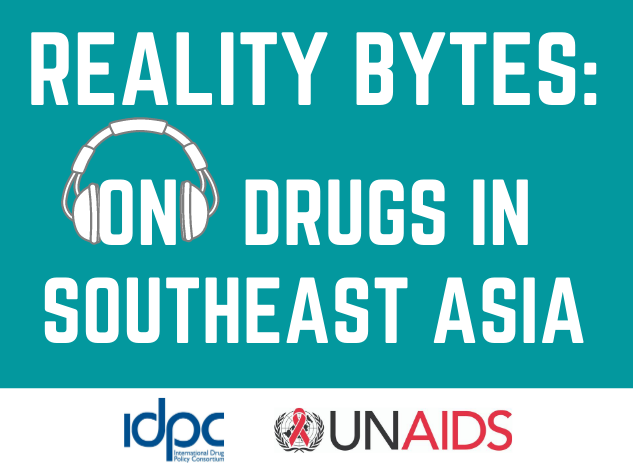PRESS RELEASE: UN report finds compulsory drug treatment facilities in East and Southeast Asia are not closing as planned, and many policy reforms have stalled

Bangkok, 12 January 2022 – A new report by UNODC and UNAIDS reveals progress to end compulsory treatment for people who use drugs in East and Southeast Asia has stalled, and the transition to voluntary, evidence-informed and human-rights based services has slowed.
Many countries in East and Southeast Asia operate compulsory “treatment” facilities for people who use drugs. These facilities are a form of confinement where those accused or known to be using drugs are involuntarily admitted for detoxification and “treatment” without adequate due process. Administered under criminal or civil law, or government policy, compulsory centres are operated by the military, the police, ministries of health or social affairs or national drug control agencies. Conditions have been reported to involve forced labour, lack of adequate nutrition, and denial or limited access to healthcare.
The report, Compulsory Treatment and Rehabilitation in East and Southeast Asia, highlights that the number of compulsory facilities and people detained in the name of drug treatment has increased in most countries since 2012. At the end of 2018, there were over 886 compulsory facilities operating in seven countries with available data, and approximately half a million people were detained annually in these facilities between 2012 and 2018.
The report follows two Joint Statements of the United Nations in March 2012 and June 2020 calling for the permanent closure of compulsory facilities for people who use drugs.
“We clearly have a long way to go to ensure that compulsory drug treatment and detention in the region are finally and permanently ended,” remarked Jeremy Douglas, UNODC Regional Representative for Southeast Asia and the Pacific. “Drug dependence is complex, and treatment needs to be built on a foundation of evidence. And fundamentally, the human rights of users need to be protected.”
International consensus supports the replacement of compulsory treatment approaches with voluntary services including psychosocial interventions, harm reduction services encompassing needle and syringe programmes and opioid substitution therapy as well as social support services.
A key part of the report was developed by the Asia-Pacific Expert Advisory Group on Compulsory Facilities for People Who Use Drugs, comprising experts from across the region. This section underlines promising examples of evidence-based treatment of drug dependence and other practices supporting the transition in China, Indonesia, Lao PDR, Malaysia, Myanmar, the Philippines, Thailand and Viet Nam. These include, among others: a programme in Indonesia integrating peer-led harm reduction services, mental health support and linkage with primary health care for people who use crystal methamphetamines; a case study of partnership between law enforcement, government agencies and community-based organizations to provide access to flexible-dose to methadone in China; a voluntary, community-based drug dependence treatment model in the Lao PDR; a programme to divert persons charged with drug use offences to outpatient psychosocial counselling instead of incarceration, reducing prison overcrowding and high costs associated with incarceration in Thailand; and a pilot programme in Viet Nam to allow for take-come methadone, eliminating transportation costs and commute time associated with in-person visits to clinics, especially in the context of the COVID-19 pandemic.
“Implementation of voluntary community-based drug treatment and complementary health, harm reduction and social support services has been slow and remain insufficiently available,” said Taoufik Bakkali, UNAIDS Regional Director for Asia and the Pacific. “We hope that the evidence laid out in this report will lead to reforms of harmful policies and practices. Removing these structural barriers is essential to expanding evidence- and human-rights health and social services and ending AIDS by 2030.”
To access or download the report
More about the Asia-Pacific Expert Advisory Group
For more info, contact:
UNAIDS Regional Office for Asia and the Pacific | Quinten Lataire | +66 064 215 0384 | lataireq@unaids.org
UNODC Regional Office for Southeast Asia and the Pacific | Karen Peters | +66 63 234 9447 | karen.peters@un.org
About us
The Joint United Nations Programme on HIV/AIDS (UNAIDS) leads and inspires the world to achieve its shared vision of zero new HIV infections, zero discrimination and zero AIDS-related deaths. UNAIDS unites the efforts of 11 UN organizations—UNHCR, UNICEF, WFP, UNDP, UNFPA, UNODC, UN Women, ILO, UNESCO, WHO and the World Bank—and works closely with global and national partners towards ending the AIDS epidemic by 2030 as part of the Sustainable Development Goals. Learn more at unaids.org and connect with us on Facebook, Twitter, Instagram and YouTube.
 UNAIDS Asia-Pacific
UNAIDS Asia-Pacific 


